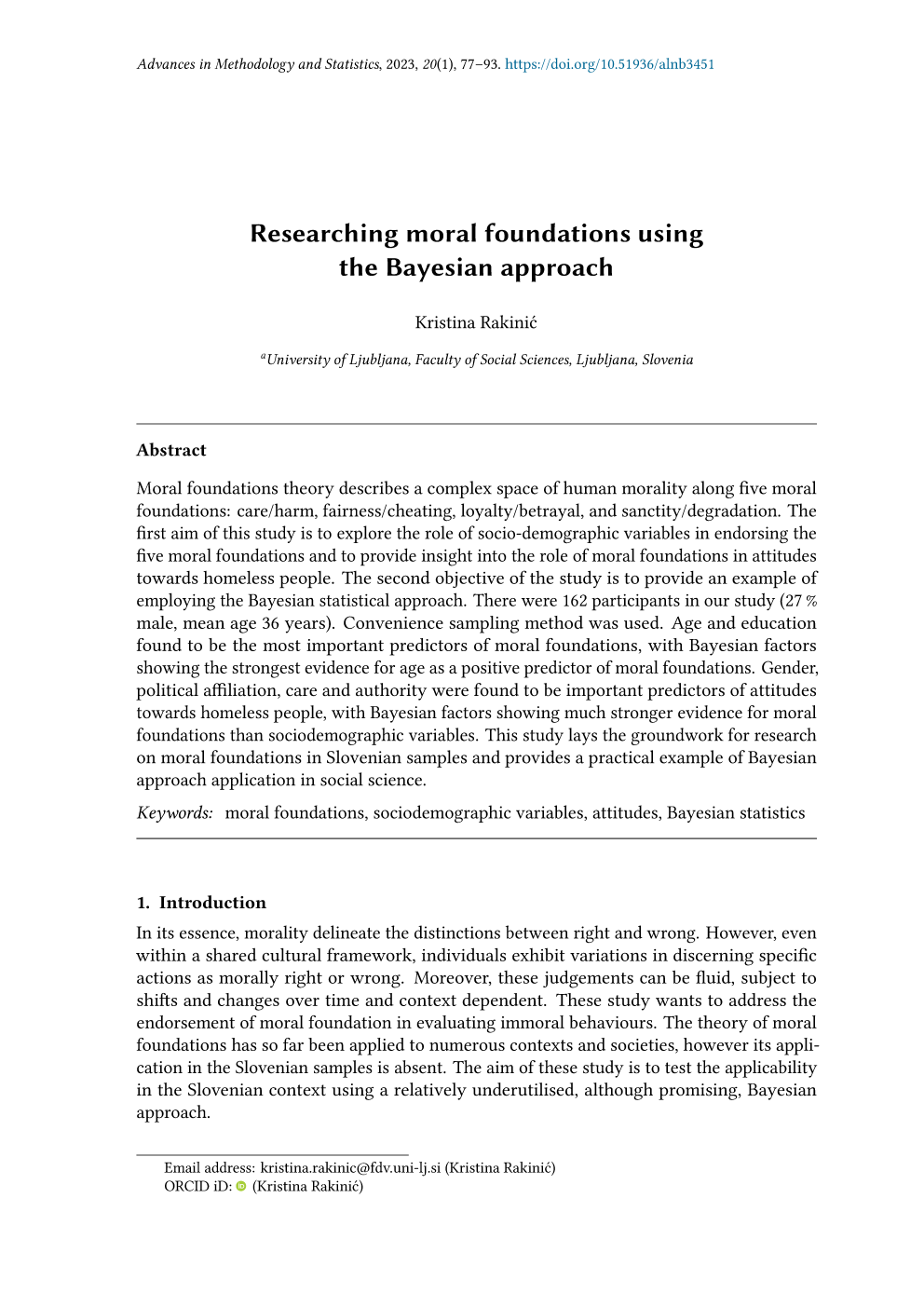Researching moral foundations using the Bayesian approach
DOI:
https://doi.org/10.51936/alnb3451Keywords:
moral foundations, sociodemographic variables, attitudes, Bayesian statisticsAbstract
Moral foundations theory describes a complex space of human morality along five moral foundations: care/harm, fairness/cheating, loyalty/betrayal, and sanctity/degradation. The first aim of this study is to explore the role of socio-demographic variables in endorsing the five moral foundations and to provide insight into the role of moral foundations in attitudes towards homeless people. The second objective of the study is to provide an example of employing the Bayesian statistical approach. There were 162 participants in our study (27% male, mean age 36 years). Convenience sampling method was used. Age and education found to be the most important predictors of moral foundations, with Bayesian factors showing the strongest evidence for age as a positive predictor of moral foundations. Gender, political affiliation, care and authority were found to be important predictors of attitudes towards homeless people, with Bayesian factors showing much stronger evidence for moral foundations than sociodemographic variables. This study lays the groundwork for research on moral foundations in Slovenian samples and provides a practical example of Bayesian approach application in social science.

Downloads
Published
Issue
Section
License
Copyright (c) 2024 Kristina Rakinić (Author)

This work is licensed under a Creative Commons Attribution-NonCommercial-NoDerivatives 4.0 International License.
